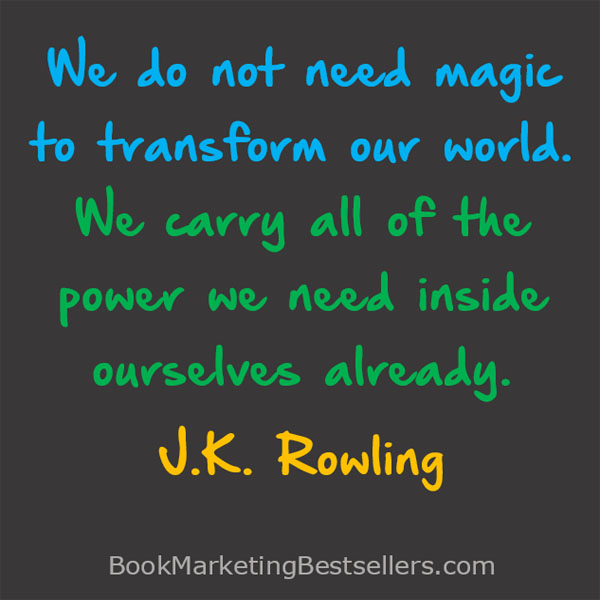Guest Post by Hayley Zelda
Fanfiction has been around for decades, but its popularity has exploded in the past few years. This new generation of writers is both reviled and celebrated for their work. It’s an interesting phenomenon to consider. On the one hand, it’s not surprising that people would want to engage with a fictional world and its characters. On the other hand, the time and effort could be put towards writing original works. In this article I’ll share some thoughts on what fanfiction is and how it can help many writers develop their skills and build their audiences.
What Is Fanfiction?
Fanfiction is any story written by an amateur fan of a television show, movie, book series, or video game. The term “fanfiction” is a portmanteau of “fan” and “fiction.” It refers to a story written by a fan of a work, not an official work of that work.
Some fanfiction is an extension of an original work, but many fanfics are completely original stories. Fanfic is created for a variety of reasons, including the desire to create an original story based on the world, characters, or a premise of an existing story. Some people write fanfic in order to show their own interpretations of events or characters from the original work. Other people write fanfic in order to explore sexual relationships between characters that cannot be portrayed in the original work, or to explore a romantic relationship between two people (usually of the same gender) in a work where romance is forbidden or discouraged. Fanfics can be set in a different time period from the original story or in an alternate reality to the original story.
The content of a fanfic is determined by the writer, and can cover any topic and genre, including romance, action/adventure, fantasy, science fiction, and humor. While some fanfic writers feel that writing fanfic is a worthwhile pastime, others feel that fanfic is a waste of their time, or that their time could be better spent on something else.
It’s Easy to Get Started
The internet is home to a plethora of different fanfiction sites. The most famous and popular websites are AO3 (Archive of Our Own), FFN (Fanfiction.net), Wattpad, and Commaful, where users enthusiastically publish different forms of fanfiction. Give it a try. You can write fanfiction for books, movies, television shows, historical figures, and even video games—so why not chart a course through the soapy world of Riverdale High? Doing so might not only provide you the experience you need to start getting published in the future, but the process of putting words to digital paper is an invaluable way to improve your writing.
No matter what fandom you choose to write about, be it Catching Fire or Harry Potter, aim to truly understand the story you’re following. Cater your character development, plot twists, and settings to the genre of the story and its universe. Writing fanfiction is a great way to develop your creative juices, in addition to your fluency in English, because well-made fanfiction shows a precision with language.

Be Part of Fandom
One of the most interesting parts of writing fanfiction is the social aspect. By writing fanfiction about a certain topic, you’re becoming part of a fandom.
A fandom is a group of fans of a particular subject that can be as sweeping as the Harry Potter series or as focused as the television show Supernatural. There are fandoms based on film and television, literary works, or even an individual artist.
Some of the most famous modern fandoms, such as those centered around the Twilight and Harry Potter novels, began as single works, but eventually grew to include fanfiction and fanart produced by a collective effort of the writing and artistic community. Many readers are happy to explore these canon-adjacent works if they love the original work, but some consider it dilutes the author’s intentions.
Build Your Network and Demonstrate Your Skill
Publishing houses don’t use fanfiction as a way to find talent. They want to read your stories that aren’t based off popular TV shows and blockbuster movies, because they’re looking for originality. However, before any editor or agent will look at your standalone or series proposal, they want to know that you know how to write.
Fortunately, there are a few evidence-building exercises you can do online to demonstrate your skill. Starting a blog is the most important activity you can do before trying to publish, and some would argue, the best one after you’ve launched. You can use it to build a network of fellow writers, hone your skills through workshops and contests, and show your ability as a thoughtful and empathetic critic.
A Tumblr profile can also help. There’s a lot of crossover between blogging and Tumblr demographics, so it makes sense to build a presence on a blogging website as well as a Tumblr in order to reach different communities. Depending on your specific goals, you might prefer one space over the other.
Build an Audience
Marketing is often one of the hardest things to do as an author. Fanfiction provides a built-in audience for your work. By writing in the Harry Potter fandom, you’re borrowing from the Harry Potter audience instead of building your own audience from scratch.
There are still ways to promote your fanfiction to make sure it reaches the widest audience possible. Make sure that you’ve found all the relevant fanfiction groups and pages to reach out to. There are also a number of fanfiction databases for specific fandoms and genres. Tap into those as well.
Use Your Fanfiction to Build Your Writing
Writing a piece of fanfiction is a good way to learn the basics of storytelling because trope composition and plot organization are very similar. However, once you’ve mastered that, step back and figure out where you’d like to go with your writing. Are you planning to work in fanfiction forever, or do you want to try something original? Do you have a story about your fandom that is screaming to be put down on paper, or is it just an idealized one-off that doesn’t really warrant additional attention?
How do you do the latter without risking the ire of the fans you’re trying to leave behind? Perhaps the best way to start creating a new piece of fanfiction is to create a thread of the different characters and scenarios that fit together like a novel. Then, separate them into plots in order of chronological or temporal importance—your main plot, sub plots, flashbacks and so on. Then split them out into different scenes in reverse chronology, so that important and climactic scenes are used as culmination points for each character’s main plot line. An added bonus to writing this way is that it will also be easier to predict the most likely milestones that need to be brought about to bring the story to its ultimate conclusion.

Take the Plunge with Your Own Characters
One powerful thing about fanfiction as a writing exercise is that you can control how much creativity you want to use and how much you want to share with the original work. For example, if you’re writing about the Harry Potter fandom, you could write a story about Harry, Ron, and Hermione. This uses the setup in the main series and you are tasked with just coming up with plot. The backstory, universe, and characters are already designed for you.
A more difficult exercise is to use just the world and universe and come up with your characters yourself. You’re writing a brand new story with new characters, but it’s still fanfiction because you’re describing the events that transpire within someone else’s living world. This serves as a great creative exercise. You can also do the reverse and put Harry, Hermione, and Ron in a universe you design yourself to practice world-building.
Fanfiction is a world of opportunity. Just about anyone can open up their favorite books or watch their favorite television shows and write new stories about familiar characters. But of course, like anything else, it takes some work. What do you think? Are you going to start writing your own fanfiction?
About the Author
Hayley Zelda is a writer and marketer at heart. She’s written on all the major writing platforms. She’s also worked with a number of self-published authors on marketing books to the YA audience.
About John Kremer
John Kremer is author of 1001 Ways to Market Your Books, the Relationships Matter Marketing program, and many other books and reports on book marketing, Internet marketing, social media, and book publicity. -- John Kremer on Book Marketing.


Pingback: Writing Tips for Book Authors, Bloggers, and More – Book Marketing Bestsellers